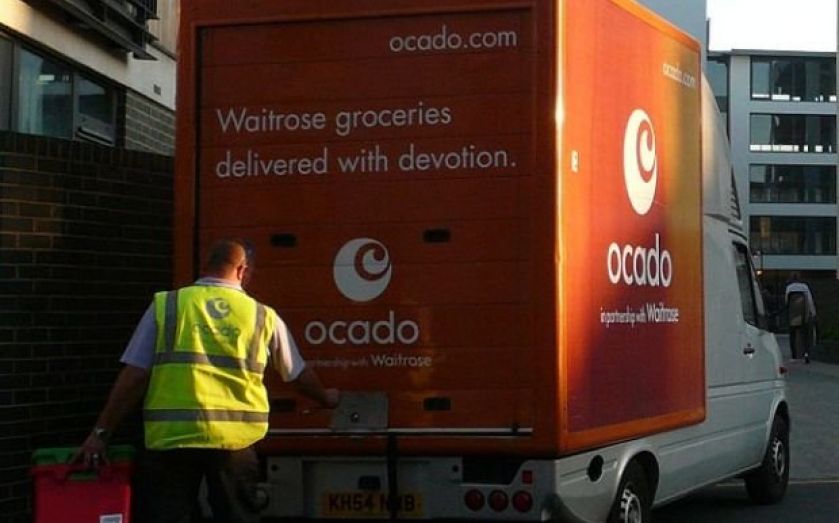| Updated:
Ocado delivers a profit but sales growth slowing

Shares in Ocado slid 4.3 per cent yesterday despite the online grocer moving into the black in the first half, paving the way for its first annual profit in its 13-year history.
The company said pre-tax profits totalled £7.5m for the 24 weeks to 18 May, following a £3.8m loss last year, thanks to its £216m online tie-up with Morrisons.
Gross sales rose 15.6 per cent to £442.4m, down from 18 per cent growth in the first quarter.
Steiner attributed the slowdown to “cautious consumer spending” and lower prices in the sector: “The pricing action is hurting the profitability and sales of all grocery retailers.
“We have continued to invest in our pricing to create a better proposition to customers…that has cost us a few millions of pounds in terms of profitability,” he said.
Ocado said has also secured a site for a third distribution centre in Andover, in Hampshire. It will cost £80m to build and will be financed by a new £100m borrowing facility.
Andover will be about a third of the size of its two other warehouses and Ocado aims to use this smaller model to secure distribution deals with other retailers besides Morrisons.
Jefferies analysts yesterday raised fears over the Ocado’s contract with Waitrose, saying its early termination was a “real threat”.
The contract has an early termination provision for 2017 but Steiner said “currently nobody has announced its intention to use that”.
WORDS WITH: TIM STEINER
After 13 years of running a company that many households love but fewer people are convinced will be a financial dynamo, one might have expected Ocado founder Tim Steiner to have been more than a little ecstatic about it breaking into a six-month profit for the first time.
But there was no sign of euphoria, or even a little jubilation, when he spoke to City A.M. yesterday. “I am not sitting here feeling wonderfully victorious because we produced a profit,” Steiner said.
“We said when we were making a loss that making a profit wasn’t the primary focus at this stage. It was about the long-term value of the business.”
With his sights firmly set on what Ocado can achieve 10 years from now, Steiner said that the next priority is delivering a new business platform and warehouse model that will allow it to run online businesses for “10,20, or 40” retailers as opposed to just Morrisons.
Steiner’s unwavering confidence in the grocer’s business model and his stubborn ambition may explain why he is the last of Ocado’s three co-founders still with the company.
The FTSE 250-listed grocer has been mired with controversy since it floated in 2010, attracting short-sellers and critics who have written off Ocado as “irrelevant” within the £175bn grocery industry.
But with new opportunities for the business now emerging, Steiner said Ocado will continue to defy critics: “We have been investing in a platform when people said we shouldn’t be investing in that platform and they are wrong, because they now all want to have what we have got.
“Whether we were mad or we have foresight – either way we now have something that other people want and that is an enormous opportunity for our stakeholders.”